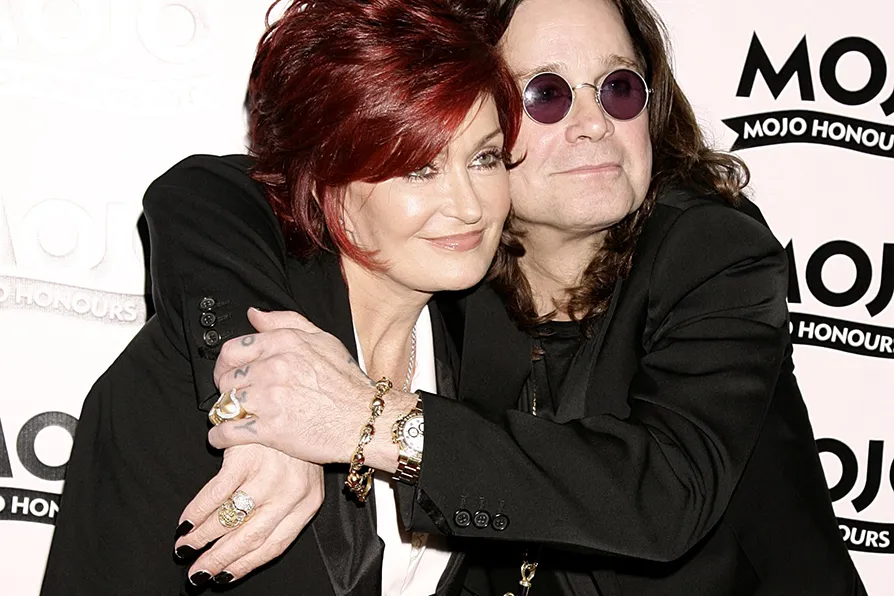DENNIS BROE searches the literary canon to explore why a duplicitous, lying, cheating, conning US businessman is accepted as Scammer-in-Chief
WILL STONE fact-checks the colourful life of Ozzy Osbourne

 BLAME THE WIFE? Sharon and Ozzy Osbourne arriving for the Mojo Honours List award ceremony at The Brewery, East London, June 2007
BLAME THE WIFE? Sharon and Ozzy Osbourne arriving for the Mojo Honours List award ceremony at The Brewery, East London, June 2007
HELLRAISER, bat-eater, drink and drug casualty, heavy metal pioneer and reality TV star – the self-styled Prince of Darkness, who died this week aged 76, has been one of the most colourful, controversial and influential characters in British music history.
John Michael “Ozzy” Osbourne was born on December 3 1948, and grew up in Aston, Birmingham, to working-class parents.
His upbringing was an unhappy one. Living in relative poverty, he suffered sexual abuse aged 11 at the hands of two other boys, and at 17 spent six weeks in jail for robbing a clothes shop after his father refused to pay the fine.
Before forming Black Sabbath in the late ’60s with bassist Geezer Butler, guitarist Tony Iommi and drummer Bill Ward, he left school at 15 to work various jobs, including as a construction worker, trainee plumber and slaughterhouse worker.
Black Sabbath were very much a product of post-war industrial Birmingham. The city was badly bombed during WWII and the band, all born just a few years after the war ended, were raised surrounded by the remnants of that destruction.
The urban decline of a bombed-out Brum, along with the social alienation and economic hardship it brought, massively influenced Black Sabbath’s sound, itself a rejection of the more middle-class hippy movement that preceded it.
Black Sabbath’s seminal second album, Paranoid, opens with the thunderous War Pigs, a scathing anti-war classic bereft of any peace-and-love sentiment: “Generals gathered in their masses, just like witches at black masses, evil minds that plot destruction, sorcerer of death’s construction.”
There can be no doubt that Black Sabbath’s first six albums – Black Sabbath, Paranoid, Master Of Reality, Vol. 4, Sabbath Bloody Sabbath and Sabotage – were highly instrumental in paving the foundations of heavy metal.
Yet their sound is also awash with psychedelia, blues and prog influences, satanist lyrics, Ozzy’s uniquely raw singing style and Iommi’s spaced out, iconic riffs: all clear precursors of almost every heavy metal sub-genre imaginable, from black and death metal to the more niche doom, stoner and sludge.
That Ozzy’s brain frazzled from years of drink and drug abuse has been well documented. He was fired from Black Sabbath by the band’s manager Don Arden in 1979. Arden’s daughter, Sharon, took on the role of managing Ozzy and married him a few years later in 1982.
The hugely popular US reality TV series The Osbournes, which first aired more than 20 years ago in 2002, revealed that Sharon was more than just Ozzy’s manager, she was arguably his minder too.
Ozzy captured audiences’ hearts on the show with his confused state, which frequently provided much comic relief, as he struggled with everyday tasks and often seemed unsure of what planet he was on.
In the flood of tributes for Ozzy, prog-rock legend Rick Wakeman, who was a session musician on the Black Sabbath track Sabbra Cadabra, said: “This might sound a bit awful but I don’t think Ozzy would have survived as long as he did had it not been for Sharon.
“I think Sharon, in many ways, saved Ozzy’s life and for that she should be incredibly proud.”
Unfortunately for Ozzy, tributes to his legacy have also been tarred by Sharon’s influence on him as a right-wing zionist. She has made headlines recently for her outspoken support for Israel and against acts like Irish rap trio Kneepcap for speaking out against the genocide in Gaza.
Many fans of Ozzy have been disappointed to learn that he performed in Israel twice, once in 2010 and again in 2018, and was recently among 200 names (including Sharon) to sign an open letter calling for an investigation into the BBC’s alleged anti-Israel bias.
But to believe he held strong views on the issue independently of Sharon would be to misread and overstate Ozzy’s politics, who once said: “I try to stay away from politics. They don’t understand me, and I don’t understand them.”

SUSAN DARLINGTON swoons in the presence of a magnetic frontman

WILL STONE is impressed by a tour de force rendition of three decades’ worth of orchestral chamber pop

TOM STONE checks the political coordinates of a festival where the pleasures of nostalgia were (sometimes) harnessed to a new message

WILL STONE relishes the chance to hear the Isle of Wight indie sensation in an intimate setting









